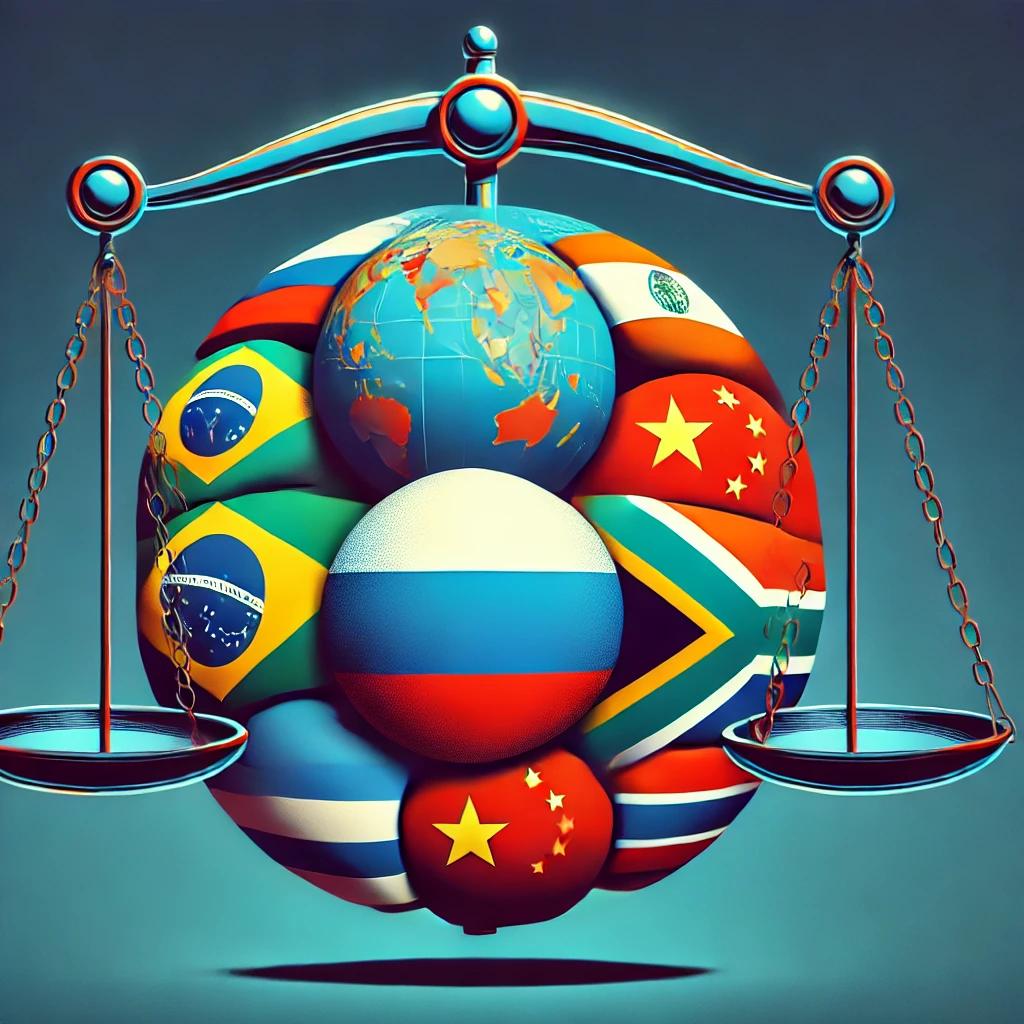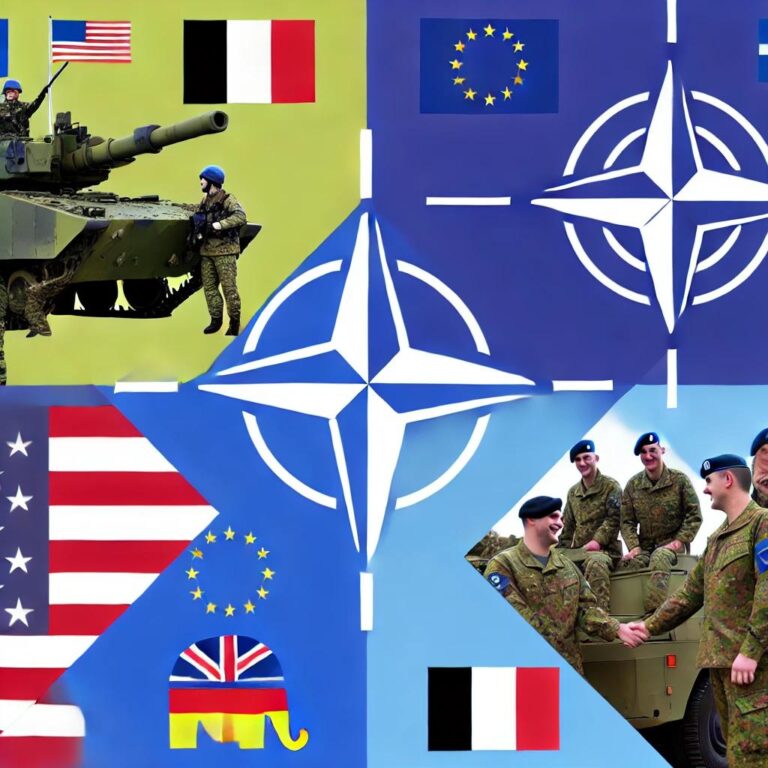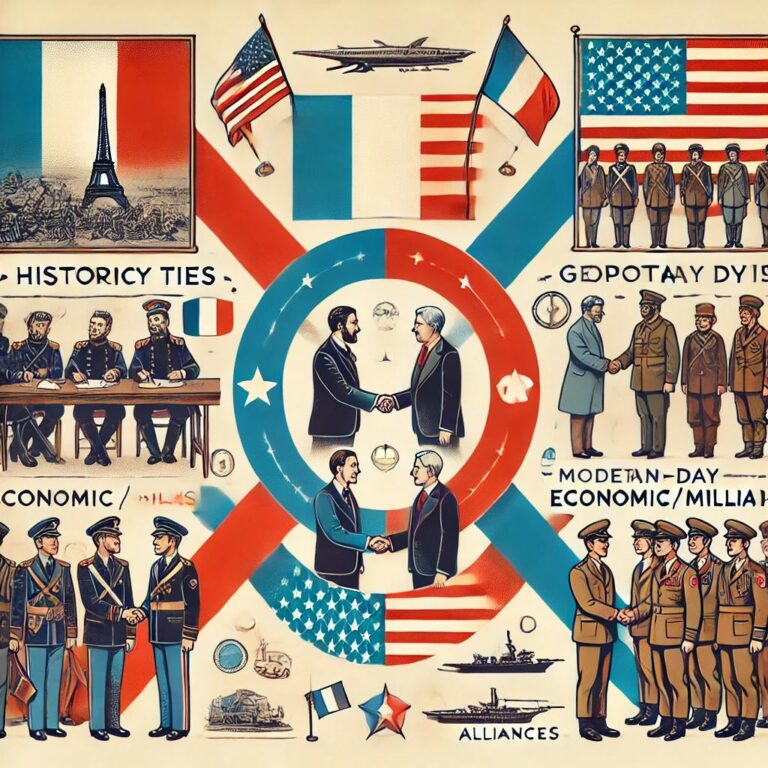
Introduction to BRICS
BRICS represents a noteworthy coalition in the modern geopolitical landscape, comprising five prominent nations: Brazil, Russia, India, China, and South Africa. This assembly of countries, collectively referred to by the acronym BRICS, signifies a collective endeavor of emerging economies geared towards influencing the global economic and political arenas.
The inception of BRICS can be traced back to the early 2000s when a need for consolidating the economic power of these nations was felt. Initially conceptualized as “BRIC” in 2001 by economist Jim O’Neill to denote the growing economic influence of Brazil, Russia, India, and China, the group officially took shape in 2009 during their first summit. South Africa’s inclusion in 2010 extended the acronym to BRICS, fostering a more comprehensive representation of key developing economies from different continents.
The primary objectives of BRICS revolve around promoting peace, security, and development in a multipolar world. This coalition seeks to foster an equitable, democratic, and stable international system. The member nations aim to facilitate mutual economic growth and sustainable development by enhancing cooperation in trade, investment, and infrastructure. Another critical goal is to reform international financial institutions, such as the International Monetary Fund (IMF) and the World Bank, to better reflect the economic contributions and interests of emerging economies.
The role of BRICS as an emerging force in global economics and politics cannot be overstated. Together, these countries account for a considerable proportion of the world’s population, gross domestic product (GDP), and trade volumes. By leveraging their collective potential, BRICS aims to rebalance the existing power dynamics, offering an alternative to the Western-centric order. Through various summits and initiatives, BRICS continues to underscore the importance of multilateralism, economic cooperation, and shared development goals, striving to establish a more inclusive global governance framework.
Economic Influence of BRICS
The BRICS nations—Brazil, Russia, India, China, and South Africa—collectively wield considerable economic influence on the global stage. In terms of Gross Domestic Product (GDP), these countries together account for an estimated 24% of the world’s total GDP, underlining their significant economic clout. With a combined population of over 3 billion people, BRICS countries present vast markets for goods and services, further amplifying their economic importance.
Trade volumes in BRICS nations have also been on a steady rise, with intra-BRICS trade growing robustly. For instance, the trading volumes between China and India touched nearly $100 billion in recent years. This is indicative of the substantial economic interactions taking place within the bloc. When compared to traditional Western powers like the United States and the European Union, the BRICS’ rapid economic growth rates offer a stark contrast. While the Western economies have matured and, in some cases, stagnated, BRICS nations often enjoy higher growth rates, with China and India frequently posting rates above 5%.
The major economic sectors where BRICS countries make a notable impact include manufacturing, technology, and natural resources. China, for example, is a global leader in manufacturing and technology. India excels in the software and services sectors, while Brazil and Russia are prominent players in commodities like oil and natural gas. South Africa is rich in minerals and has a diverse economy, adding to the collective strength of the BRICS.
Significant initiatives such as the creation of the New Development Bank (NDB) underline the bloc’s intentions to reshape global financial structures. The NDB aims to fund infrastructure and sustainable development projects in BRICS and other emerging economies, providing an alternative to Western-dominated financial institutions like the International Monetary Fund (IMF) and the World Bank. This move not only diversifies global financial dependencies but also empowers emerging markets, contributing to a more balanced international economic landscape.
Political and Diplomatic Strategies
The BRICS nations—Brazil, Russia, India, China, and South Africa—have strategically collaborated to gain leverage on the international stage. Their collective diplomatic strategies emphasize promoting multipolarity and rebalancing the power structures that have traditionally favored Western countries. Through unified efforts in international forums such as the United Nations and the G20, BRICS countries advocate for a more equitable representation and push for significant reforms in global governance structures.
In the United Nations, BRICS members have repeatedly called for the reform of the Security Council to include more permanent seats, a change that would better reflect the contemporary geopolitical landscape. In the G20, the BRICS countries have also voiced collective concerns and proposed actionable measures, particularly in response to global financial instability, trade wars, and economic inequality. This united front serves as a counterbalance to the influence traditionally exerted by more established economies.
Specific instances of BRICS influence in international policy reform can be seen in their stance on environmental issues and sustainable development. During the 2015 Paris Climate Conference, BRICS nations collectively pushed for a balanced approach that acknowledges the development rights of poorer countries while pursuing global climate goals. Their insistence on principles of “common but differentiated responsibilities” influenced the final agreement, ensuring it included considerations of equity and fairness among participating nations.
Similarly, in terms of economic policies, the BRICS countries have established the New Development Bank (NDB) as an alternative to traditional financial institutions like the International Monetary Fund (IMF) and the World Bank. By providing financial resources for infrastructure and sustainable projects without the stringent conditions often imposed by Western-led institutions, the NDB demonstrates BRICS’ commitment to rebalancing economic power.
In summary, the diplomatic strategies of BRICS nations are prominently focused on reshaping global governance to create a more balanced international order. Their collaborative efforts in major international forums and specific policy reform initiatives underscore their dedication to establishing a multipolar world that accommodates diverse interests and aspirations.
The role of BRICS (Brazil, Russia, India, China, and South Africa) in regional stability is profound, as each member nation significantly contributes to the geopolitical landscape within their respective regions. These contributions are often manifested through diplomatic endeavors and, at times, military interventions, reflecting the diverse mechanisms they employ to foster regional stability.
Diplomatic Efforts
Diplomatically, BRICS nations leverage their collective influence to mediate conflicts and promote peace. For instance, China has played a crucial role in the denuclearization discussions on the Korean Peninsula by facilitating talks between North Korea and the United States. Similarly, India’s active participation in the Shanghai Cooperation Organization (SCO) has helped to streamline counter-terrorism initiatives and improve economic cooperation among member states, thus contributing to the stability of Central Asia.
Military Interventions
In terms of military interventions, Russia’s involvement in Syria to support the Assad regime has been a significant example. Through its intervention, Russia has aimed to curb the influence of extremist groups and restore stability in the region. Brazil and South Africa have primarily engaged in peacekeeping missions under the United Nations’ umbrella, particularly in African nations, where instability is a recurring challenge. These efforts highlight their commitment to enhancing regional peace and security.
BRICS as a Counterbalance
The potential for BRICS to act as a counterbalance to traditional Western alliances, such as NATO, is increasingly evident. By fostering military and economic alliances within their bloc and with non-Western countries, BRICS is gradually reshaping the global power dynamic. The New Development Bank (NDB), established by BRICS, exemplifies this shift by providing financial resources to developing countries, thereby reducing their reliance on Western financial institutions like the IMF and World Bank.
Overall, the contributions of BRICS to regional stability are multifaceted, involving diplomatic engagements and strategic military interventions. These actions not only enhance stability within their respective regions but also set the stage for BRICS to emerge as a formidable counterbalance to Western-dominated alliances on the global stage.
Challenges and Criticisms Facing BRICS
BRICS, an alliance of emerging economies comprising Brazil, Russia, India, China, and South Africa, faces a multitude of challenges both internally and externally that could potentially affect its cohesion and efficacy. These challenges manifest in political, economic, and social dimensions which scrutinize the organization’s impact and unity on the global stage.
Internally, the member countries encounter political instability and differing governance models, raising questions about their collective decision-making ability. Brazil, for instance, has experienced significant political turbulence, which may undermine its capacity to contribute effectively to BRICS initiatives. Meanwhile, Russia’s geopolitical confrontations and subsequent sanctions from Western nations add a layer of complexity to its economic interactions within the grouping. Such political uncertainties can erode trust and impede cohesive policy formulation.
The economic disparities among BRICS members also present a substantial challenge. While China and India exhibit rapid economic growth, Brazil, Russia, and South Africa struggle with slower development rates and varying degrees of economic crises. These differences can lead to conflicting priorities and may hinder the organization’s ability to present a united front on global economic policies. Additionally, trade imbalances and protectionist measures within the group further complicate economic cooperation, potentially limiting their collective influence.
Social issues, such as vast inequalities and developmental discrepancies, compound these challenges. High levels of poverty and unemployment in certain member states necessitate prioritization of domestic concerns over international commitments, potentially detracting from BRICS’s global initiatives. Disparities in societal development could also exacerbate tensions among the nations, affecting their ability to coordinate effectively on shared objectives.
The effectiveness and unity of BRICS have often been subjects of criticism. Skeptics argue that the alliance lacks institutional coherence and concrete achievements, questioning its capability to rebalance the global power structure. The divergent national interests and regional hegemonies within BRICS may lead to fragmented responses to international issues, thus weakening their collective bargaining power.
In light of these challenges and criticisms, the stability and global influence of BRICS remain precarious. As the member countries navigate their internal complexities, maintaining solidarity and advancing their collective interests on the international stage will require significant diplomatic acumen and strategic collaboration.
Future Prospects for BRICS
The BRICS consortium, comprising Brazil, Russia, India, China, and South Africa, holds significant potential for shaping the future dynamics of the international landscape. As these emerging economies continue to grow and integrate more deeply, several potential expansions and strategic collaborations highlight the trajectory of this influential group.
Potential expansions in the BRICS alliance could involve new countries expressing interest in joining the group. Nations such as Indonesia, Turkey, and Nigeria have been mentioned in academic and diplomatic circles as potential candidates. The inclusion of new members could bolster the economic strength and geopolitical influence of the BRICS group, making it a more robust counterbalance to traditional Western power structures.
Looking ahead, predictions about the long-term evolution of BRICS suggest a steady increase in their economic and political influence. Analysts forecast that the collective GDP of BRICS nations could surpass that of the G7 countries by the mid-21st century. This economic growth could empower BRICS nations to play a more assertive role in international organizations such as the United Nations, the World Trade Organization, and the International Monetary Fund, facilitating a rebalancing of global power dynamics.
Key strategic projects and collaborations will be pivotal in shaping the future trajectory of BRICS. The New Development Bank, established by BRICS countries, exemplifies their commitment to fostering infrastructure and sustainable development projects within member states and beyond. Initiatives such as the Belt and Road Initiative, primarily driven by China, and India’s International Solar Alliance highlight the collaborative spirit within BRICS, aiming to drive regional and global development.
In essence, the future of BRICS appears promising, with considerable opportunities to enhance their influence on the international scene. Their strategic collaborations and potential expansions will likely redefine the global balance of power, driving a more multipolar world order.
BRICS vs. Traditional Powers: A Comparative Analysis
The rise of the BRICS nations—Brazil, Russia, India, China, and South Africa—has created a new dynamic in the global balance of power, challenging the long-standing influence of traditional Western powers such as the United States and the European Union. This comparative analysis examines the strengths and weaknesses of these entities in terms of economic power, military capabilities, and soft power influence.
In terms of economic power, BRICS countries collectively contribute a significant portion of global GDP. China, for example, stands as the world’s second-largest economy, trailing only the United States. India is not far behind, ranking among the top economies with consistent GDP growth rates. However, BRICS nations face economic disparities among themselves, which can hinder unified action. In contrast, the US and EU benefit from more integrated and mature economies, with the EU comprising several advanced economies working under a consolidated economic framework.
Militarily, the traditional powers retain an edge. The United States boasts unmatched military spending and technological superiority, while NATO provides a framework for combined defense strategies among Western allies. Russia is the military heavyweight among BRICS, possessing nuclear capabilities and advanced warfare technologies. China’s military modernization is rapidly closing the gap with Western powers, focusing on advancements in artificial intelligence, cyber warfare, and naval expansion.
Soft power influence showcases another area of divergence. Western powers have long dominated global cultural and ideological narratives through media, educational institutions, and international diplomacy. American culture, values, and institutions continue to wield substantial influence worldwide. The EU’s emphasis on human rights, environmental sustainability, and multilateralism further bolsters its soft power. Conversely, BRICS nations are gradually enhancing their soft power through initiatives like China’s Belt and Road Initiative and India’s cultural diplomacy, yet they still navigate challenges related to governance and human rights perceptions.
The interplay between cooperation and competition is evident in areas such as global trade, climate change, and technological innovation. While BRICS nations often coordinate to amplify their voices on the international stage, differences in national interests can lead to competitive friction. Conversely, the US and EU frequently collaborate through established alliances but sometimes diverge on protectionist policies or geopolitical strategies.
The evolving dynamics between BRICS and traditional powers are reshaping the global balance of power. This rebalancing act is not just a shift in numerical power but a redefinition of influence that spans economic clout, military prowess, and cultural reach. Understanding these complexities is essential for anticipating future trends in international relations and global governance.
Conclusion: Rebalancing the Global Order
In the rapidly evolving landscape of international relations, BRICS—comprising Brazil, Russia, India, China, and South Africa—has been pivotal in rebalancing the global order. Emerging as a significant counterbalance to the traditional preeminence of Western powers, BRICS has harnessed its collective economic output to influence global politics, trade, and security dynamics. These nations, with their diverse geographies and cultural backgrounds, have united under a common vision: to foster a multipolar world where no single power dominates.
Economically, BRICS has showcased remarkable growth and contributed substantively to global GDP. Their collaboration aims to reduce dependency on Western financial structures and promote equitable development. Institutions like the New Development Bank signify their intent to create alternative platforms for economic cooperation and development financing. The emphasis on economic inclusivity and sustainable growth highlights their role in shaping a more balanced economic framework globally.
Politically, BRICS has sought to champion a more democratic and inclusive international governance system. By advocating for reforms in institutions such as the United Nations and the International Monetary Fund, it underscores the necessity for these bodies to reflect contemporary global realities better. This shift toward inclusivity and fairness in international decision-making has resonated with many developing nations, thus enhancing BRICS’s influence.
From a security perspective, BRICS nations have emphasized the principles of sovereignty and non-intervention. Their coordinated stance against unilateral actions and sanctions reinforces the importance of dialogue and diplomacy in resolving international disputes. This approach not only realigns international security norms but also promotes regional stability.
Looking ahead, the future trajectory of BRICS will be shaped by both internal dynamics and external challenges. While its influence is poised to grow, internal disparities and geopolitical tensions could impede its progress. Nonetheless, the coalition’s foundational principles and growing relevance in global affairs suggest a continued impact on the international scene, fostering a more balanced power distribution.



